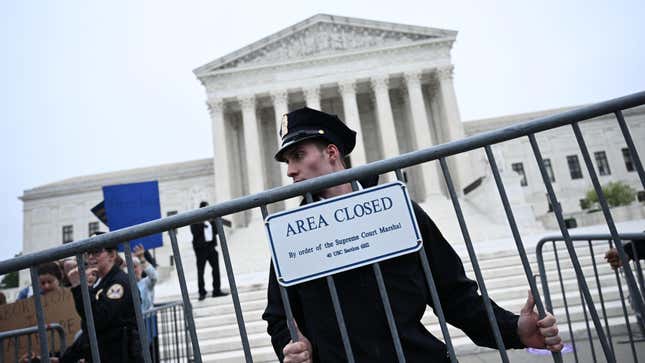Looks Like the Supreme Court May Rule on Abortion Again Very Soon
Clashing court decisions over two state abortion bans appear to be on a collision course back to the body that just overturned Roe.
AbortionPolitics

It’s been two months since the Supreme Court overturned Roe v. Wade, and it appears the court is going to have to deliberate on abortion again very, very soon. That’s because overturning Roe was never going to “settle” the matter but instead unleash a whirlwind of new legal challenges. Now, lawsuits over abortion bans in Idaho and Texas appear to be on a collision course headed right back to the high court.
On Wednesday, a federal judge in Idaho agreed with the Department of Justice, ruling that the state’s abortion ban must allow hospital doctors to provide abortions when a pregnant person’s health or life is at risk. (Pregnancy can be life-threatening in cases of pre-eclampsia, incomplete miscarriages that cause sepsis, and, yes, ectopic pregnancies.) The judge agreed that the state ban, as written, violated a federal law—the Emergency Medical Treatment and Active Labor Act (EMTALA)—that requires hospitals receiving federal funds to provide emergency care.
-

-

-

-

-

-

-

-

-

-

-

-

-

-

-

-

-

-

-

-

-

-

-

-

-

-

-

-

-

-

-

-

-

-

-

-

-

-

-

-








































